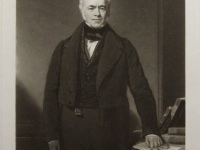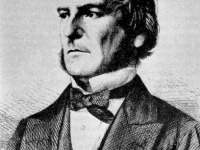John Venn and the Venn Diagram
On August 4, 1834, English logician and philosopher John Venn was born. He is best known for his contribution of the eponymous Venn diagram, used in the fields of set theory, probability, logic, statistics, and computer science. “I began at once somewhat more steady work on the subjects and books which I should have to lecture on. I now first hit upon the diagrammatical device of representing propositions by inclusive and exclusive circles.…
Read more






